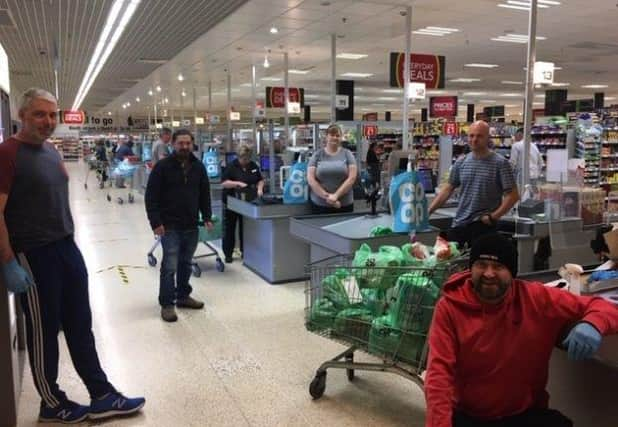Pandemic highlights societal inequalities


This time, I’m coming to work from home for two weeks – which is a privilege that isn’t afforded to everyone, and one for which I am very grateful.
If the last 20 months of our shared pandemic experience have taught us anything, it’s that while we’re all created equal, we don’t all get the chance to live equally. Radio stations, as it turns out, have been quite resilient to Covid. Thanks to technology, all you need to broadcast in studio quality is a laptop, a good microphone and a solid internet connection.
Advertisement
Hide AdAdvertisement
Hide AdOther workers, though, have not been so fortunate as to huddle in the corner of the bedroom at 5am to talk into a microphone for an hour.
Last week, I interviewed Steve Murrels, the CEO of the Co-op. He was telling us about the various schemes they have in place to look after “The Ghosted Generation” – young people who feel completely at a loss because of the pandemic. They feel like their lives have been brutally interrupted, with little chance of repair. Their confidence to succeed has been undermined. They’ve been “ghosted” – like when someone you’ve been talking to romantically just stops messaging. Gone without a trace.
I thought back to my summer and Christmas holidays working at the Co-op on MacAulay Road. While we used to have fun on the kiosk cashing people’s scratchcard wins, or making special tannoy announcements for colleagues’ birthdays – I was often asked to do this, I can’t think why I was so eager – retail workers were propelled to the frontline of this pandemic. They’ve never had the chance to work from home.
I read this week that offices in London are offering “free breakfast, candy floss on demand or a gift of corporate-branded merchandise” to entice workers back into offices after 18 months at home. We got a free bacon roll on New Year’s Day on MacAulay Road a few years back.
Advertisement
Hide AdAdvertisement
Hide AdBy no means am I critical of retailers, restaurants, gyms and other sectors that are not offering incentives. Far from it. In some ways, I think incentives for returning to work probably already exist in the form of, say, a salary.
However, it does highlight the drastic inequality of experiences across the country, and across workplaces, during the pandemic. Retail workers – often young, often on minimum wage – have been soldiering on, dealing with remarkable demand for groceries, for home delivery, and explaining to angry customers why panic-buyers have ravaged the shelves of toilet roll.
In decadent skyscrapers, office workers are being encouraged back into work with all sorts of incentives – in the case of PwC, it’s an extra £1,000 payment this month. This in the same week that there are suggestions from the UK government that guidance to work from home may return in the event of a winter surge in Covid. Will employees get another £1,000 when that guidance ends again?
The UK’s Work and Pensions Secretary, Therese Coffey, has gone viral herself, for suggesting the end of the £20 uplift in Universal Credit can be offset by people simply working for an extra couple of hours a week. The New Economics Foundation offered almost immediate analysis, highlighting that “due to the Universal Credit taper rate, even without the [upcoming] National Insurance increase, many working people – eg. a cleaner earning £13,600 and on Universal Credit – will lose up to 75p in £1 earned.” Therefore, “you would need to work an additional 8 hours, or a full day each week, to make up that £20.”
Advertisement
Hide AdAdvertisement
Hide AdThere is drastic inequality in experiences of work, there is inequality in benefits and credits – even when in work. This is fuelled by an apparent vacuum in knowledge from those in charge. Add in inequality when it comes to accessing green space, the fact that the poorest are hardest hit by Covid and its aftershocks and that the health effects of long Covid will be worsened by a strained NHS.
Most low paid jobs can’t be done remotely. Zero hours contracts still exist. House prices are astronomical and out of reach. The National Records of Scotland highlights a huge gap in life expectancy. Men born in the poorest areas can expect around 25 fewer years in good health compared to those in affluent parts of Scotland, and the gap is over 21 years for women.
In radio, the luxury of working from home won’t last forever – and that’s fine by me. In other areas, there has never been such luxury to begin with. I wonder how workers in those areas feel about the fact we once applauded them, and now, in some places, are reluctant to even wear a face mask to protect them.
I wonder how many bosses are actively consulting with employees to try to improve their experiences of work. I wonder how much our governments care about addressing inequality and whether they have the gumption to realise now is an unprecedented opportunity to address these concerns.